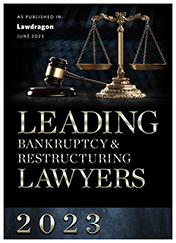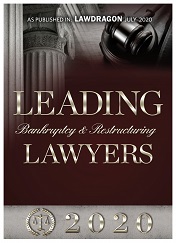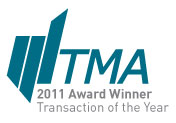Frequently Asked Questions
- What is Chapter 11?
- What is Chapter 7?
- Who controls the business in a Chapter 11?
- What is the purpose of Chapter 11?
- What should be considered in determining whether Chapter 11 is the best alternative?
- If there is a lien against the accounts receivable of the business, is Chapter 11 still possible?
- What should be considered in choosing a bankruptcy lawyer?
- What should a creditor consider in dealing with a Chapter 11?
- What information should a debtor client provide in order to analyze bankruptcy options?
- What information should a creditor client provide in order to analyze bankruptcy options?
 |
the District of South Carolina |
1. What is Chapter 11?
Chapter 11 enables a business to continue in operation in order to restructure its obligations and repay them through a confirmed plan of reorganization. The business operations continue after the bankruptcy is filed. Recent changes to the law with the enactment of the Small Business Reorganization Act give small businesses the option to reorganize under Subchapter V of Chapter 11. Subchapter V allows for a more expedited organization process, and its provisions are designed to help keep the costs down.
2. What is Chapter 7?
Chapter 7 results in termination of a business. A trustee is appointed to take control of the business assets and liquidate them to distribute to the creditors in the order of their priority. For an individual, the trustee liquidates non-exempt assets which have equity for the benefit of unsecured creditors, and the individual is relieved of his debt.
3. Who controls the business in a Chapter 11?
In most cases, the business continues to be operated by the same parties who operated the business prior to filing Chapter 11. Unless there has been fraud or substantial mismanagement, no trustee or other controlling party is appointed to operate the business. The business continues during Chapter 11 as it operated prior to the Chapter 11 except that it operates as a Debtor in Possession. The role of the trustee in a small business case is not to operate the business, but to help facilitate a consensual plan between the debtor and its creditors.
4. What is the purpose of Chapter 11?
Although there are many varied benefits to Chapter 11, the primary benefit it provides is time. For a struggling business, Chapter 11 provides a breathing space in which the company has time to step back and evaluate its ongoing operations and make changes necessary to improve profitability. It uses this time to determine how to repay its creditors in a restructured way and provide for such payment in a plan of reorganization.
5. What should be considered in determining whether Chapter 11 is the best alternative?
Filing any type of bankruptcy can be a difficult decision, involving numerous complex financial issues. Chapter 11 can be a very beneficial tool if used properly and in many cases can result in the continuing operation of a successful business which might otherwise be forced to terminate.
In order to make a decision about this option, extensive discussion with a bankruptcy professional is necessary. Any discussion will require thorough financial analysis in order to explore all the available alternatives and choose the best one for your business. In many cases, such an analysis may reveal that there are other better alternatives to Chapter 11. However, if Chapter 11 is the right solution it can provide substantial opportunities which are unavailable anywhere else.
6. If there is a lien against the accounts receivable of the business, is Chapter 11 still possible?
Yes, most businesses have liens against their accounts. In Chapter 11, the Court considers allowing use of the accounts receivable in spite of the liens or approves post petition financing based on the accounts receivable generated after the Chapter 11 filing.
7. What should be considered in choosing a bankruptcy lawyer?
Because bankruptcy is a very specialized area of the law, it is essential that a qualified attorney be chosen with experience in the particular type of bankruptcy involved. Some very qualified bankruptcy attorneys do not provide representation in Chapter 11s because they focus on representing consumers in smaller bankruptcies, rather than businesses. In choosing a bankruptcy attorney for Chapter 11, it is critical to determine that he or she has substantial experience in the field of Chapter 11 bankruptcy.
Bankruptcy is one of the few areas of the law in which attorneys are allowed to become certified specialists. Christine Brimm has been certified by The Supreme Court of South Carolina as a specialist in bankruptcy and debtor-creditor law.
8. What should a creditor consider in evaluating a Chapter 11?
A creditor should identify his goals before considering available options. If a debtor is financially stable, a creditor might want to continue its business relationship with added protections. Alternatively, a creditor might be primarily concerned with payment of its claim and the numerous available actions to accomplish this goal. Regardless of the alternative chosen, the financial cost of obtaining the goal must be considered. Meeting with a bankruptcy professional will give the creditor an opportunity to discuss methods for achieving the desired end result and the available courses of action.
9. What information should a debtor client provide in order to evaluate available alternatives?
For the first meeting with a bankruptcy professional, a debtor client should provide all available financial information, including filed tax returns for the past 2 years, current financial statements, and a complete list of assets and liabilities. In addition, a debtor client should also bring any information regarding potential creditors, including any loan documentation, mortgages, guaranties, UCC financing statements, invoices, bills of lading, payment receipts, and correspondence addressing the relationship between the debtor and potential creditors. Cash flow information and any appraisals are also helpful. If the debtor client is a partnership, corporation or LLC, the individual members or owners of the entity should also bring their individual financial information, including current financial statements and a complete list of assets and liabilities.
10. What information should a creditor client provide in order to analyze the best course of action?
In its initial discussion with a bankruptcy professional, a creditor client should provide all documentation regarding its relationship with the borrower, including all loan documentation, financial statements, mortgages, guaranties, UCC financing statements, invoices, bills of lading, payment receipts, and correspondence (including notices of default) addressing the relationship between the creditor and debtor. A current statement as to the outstanding unpaid balance is essential and a historic statement as to payment dates and amounts is also helpful. In addition, any available appraisals, inventories or borrowing base certificates should be provided.






